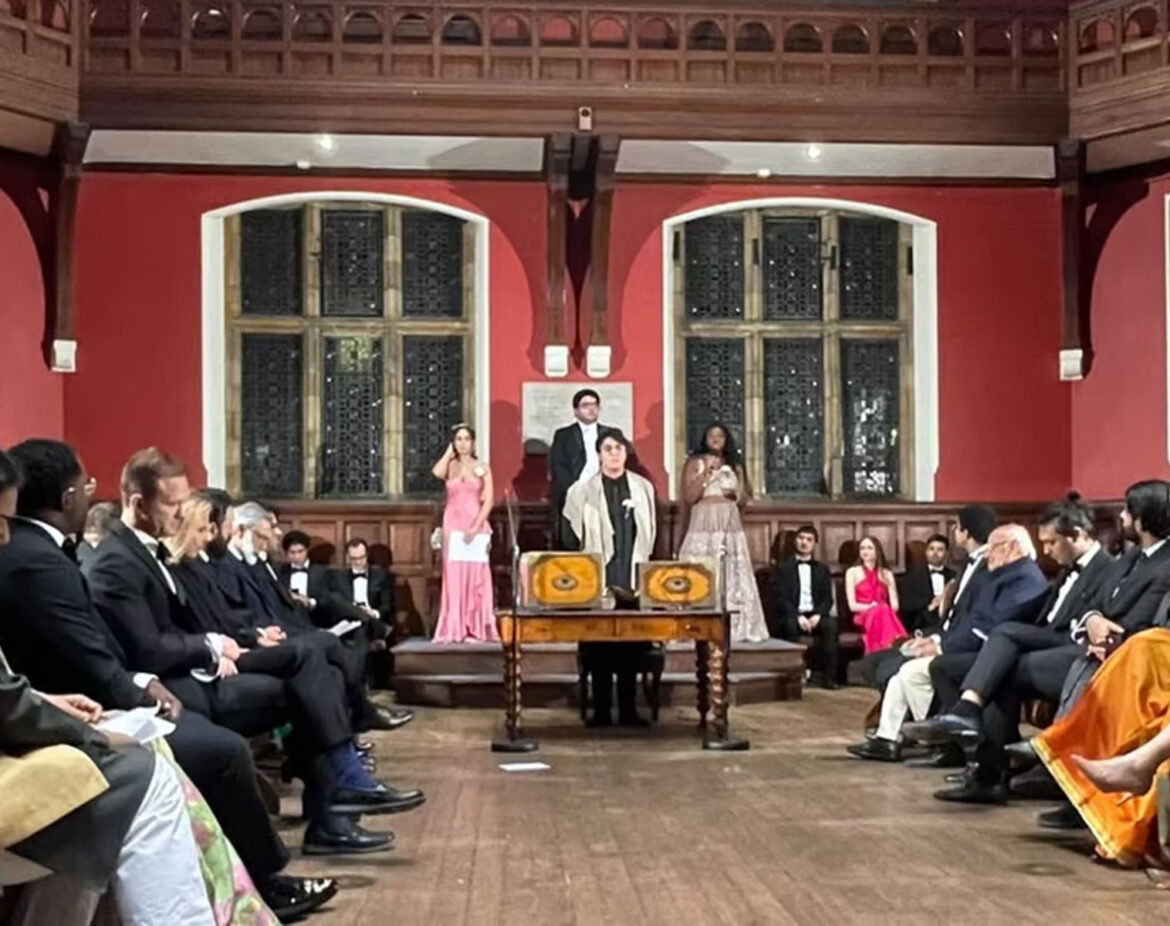A debate at the Oxford Union on the issue of Kashmir’s independence was interrupted by a group of Indian students, who raised nationalist slogans outside the venue. The event, which was part of the Oxford Union’s ongoing debate series, centered on the long-standing and contentious question of Kashmir’s self-determination—an issue that has been at the heart of India-Pakistan tensions since 1947.
The debate featured two prominent speakers advocating for Kashmir’s right to independence: Muzzammil Ayyub Thakur, a Kashmiri independence activist, and Professor Zafar Khan, a representative of the Jammu Kashmir Liberation Front (JKLF). The discussion focused on the aspirations of Kashmiris to determine their political future amidst the ongoing conflict and oppression they face.
However, the debate sparked strong opposition from some Indian students associated with the Hindutva ideology. The students, who were protesting outside the Union, denounced the event and its speakers, raising slogans in support of Indian nationalism and condemning any talk of Kashmir’s independence. Their actions were seen by critics as an attempt to suppress the voices of Kashmiris advocating for their right to self-determination.
The protest, led by the group Insight UK, which represents both the Indian and British Hindu communities, followed a formal letter sent to the Oxford Union prior to the event. The letter expressed concerns over the topics and speakers, highlighting a desire to prevent any discussion that might undermine India’s territorial integrity. The group’s stance is aligned with the broader Hindutva ideology, which critics argue is increasingly influencing Indian society and eroding its secular foundations.
While the protests focused on nationalist sentiments, they notably ignored the decades of oppression and human rights abuses suffered by Kashmiris under Indian rule in the region of Jammu and Kashmir, which is often referred to as Indian Illegally Occupied Jammu and Kashmir by activists. The protest has raised questions about the growing influence of nationalism and Hindutva thought, as well as the challenges faced by those advocating for Kashmir’s right to self-determination in a climate of rising political pressure.
The disruption of the Oxford Union debate has sparked wider debates on academic freedom, the right to free speech, and the suppression of marginalized voices within global discussions on contentious issues like Kashmir’s future.



